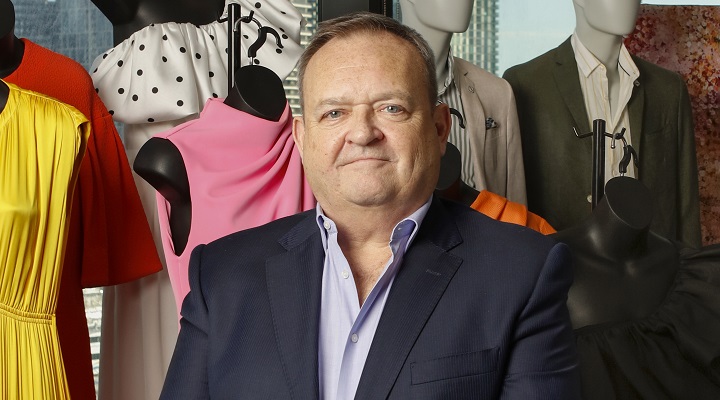Despite a slow start to FY24, with sales in the first six weeks falling 1.9 per cent year on year, Myer CEO John King spoke positively about the department store’s strong growth since the pandemic, and its future expansion centred on omnichannel retail. “This growth has been driven by the strength of our multi-channel offering, as customers have returned to stores after [the pandemic], and bolstered by our leading brand and loyalty proposition through Myer One,” King told analysts an
and investors on Thursday.
“The bottom line is that if consumers shop across multiple channels, they want to come to our stores and they want to buy from us online, and they want the experience of choosing,” where they buy.
Omnichannel shoppers frequently spend more with a brand than single-channel shoppers, and this is also true at Myer, King said.
“The ability to have both is complementary.”
Myer lifted its sales 12.5 per cent year on year in FY23, to $2.1 billion, with $45.6 million in net profit, up 18 per cent year on year. The result was impressive, considering the business doubled its profit last year and the softer trading conditions throughout the year.
Good, better, best
Noting that Myer’s sales figures were at a 30-year high, CSLA equity analyst Mark Wade asked whether this would be sustainable moving into FY24, especially with David Jones’ new owner Anchorage Capital likely to be injecting some fresh capital into Myer’s department store rival.
For King, the key to ensuring constant growth lies in its ‘good, better and best’ merchandising strategy. This way, the majority of people can find something to buy.
And despite the data showing that consumers are cutting back their spending, King said Myer’s customers are shifting in both directions.
“On the one hand we’re selling candles for $750, and fragrances for $500, but then people are also looking at [other] price points and trading into those,” King said.
“That’s the beauty of our business, we [can give the customer] the opportunity to trade up or trade down. We’re seeing people who are brand loyal, and others that are looking to explore new brands.”
Given that sales had fallen in the last quarter of FY23 and the first six weeks of the new financial year, King noted that the business would have a “clearer picture” on customer behaviour after the upcoming holiday period.
However, he did spell out some ways the business could improve its retail experience: investment into store experience, technology, and the upcoming launch of its national distribution centre, which is set to launch before Christmas.
Theme of theft
The shift in consumer behaviour hasn’t just affected spending habits, of course. Businesses across the retail industry have seen higher levels of theft and retail crime in recent months, as individuals grapple with the increasing price of necessities, and organised crime syndicates hit the sector hard.
Myer saw retail theft hit 1.8 per cent of sales in FY23 – a figure that would equate to approximately $60 million – and King said the business had a number of ongoing matters open with the police.
“It’s certainly [a situation] where we are all united in terms of how we deal with this, and we’ve got to deal with it in the appropriate way and make sure that our team members are safe,” King said.
“Then we can attack it on a more strategic basis in terms of bringing it down.”
A new era?
In June, King announced his intention to step down from his role as CEO in the second half of the 2024 calendar year, and analysts on Thursday took the opportunity to ask about this, and what it could mean for the future of the business.
King has been instrumental in delivering Myer’s ‘Customer-First Plan’, and the announcement of his exit, coinciding with recent increases in Premier Investments’ owner Solomon Lew’s holdings in the business, has led some to ask who will be leading Myer in the next few years.
Lew has long claimed a desire to spill the Myer board and plant his own leader in the driver’s seat.
“How can we be sure that Solomon Lew’s culture will not override what has been achieved and what has been proven [to work]?,” one investor asked King on the call.
“Is there any guarantee that there won’t be a wholesale change in the [leadership] team … because we don’t necessarily agree with every aspect of the way [Premier] leads.”
King was diplomatic in his response.
“I think Premier have been great shareholders, and they’ve increased their stake so they clearly see value in Myer,” King said.
“They’re supportive, and that’s what we want from all our shareholders.”

